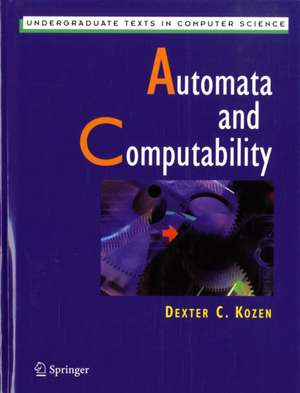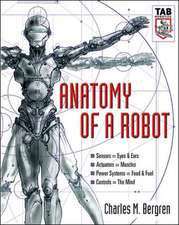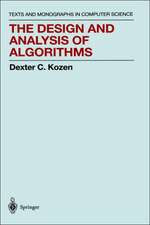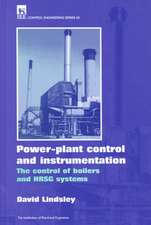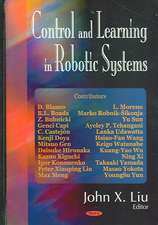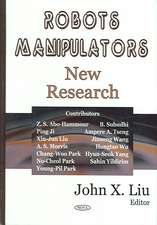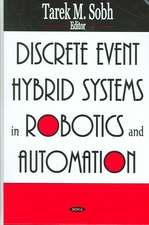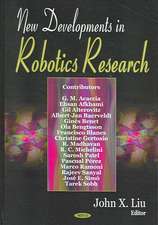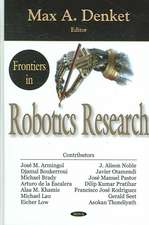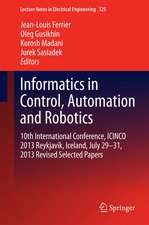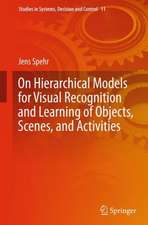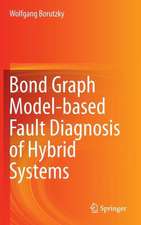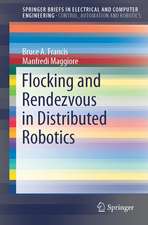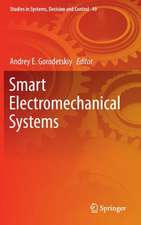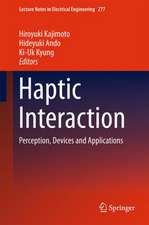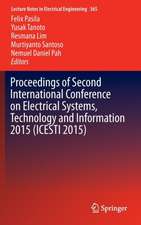Automata and Computability
Autor Dexter C. Kozenen Limba Engleză Hardback – 30 apr 1997
| Toate formatele și edițiile | Preț | Express |
|---|---|---|
| Paperback (1) | 333.00 lei 6-8 săpt. | |
| Springer – 13 oct 2012 | 333.00 lei 6-8 săpt. | |
| Hardback (1) | 510.66 lei 6-8 săpt. | |
| Springer – 30 apr 1997 | 510.66 lei 6-8 săpt. |
Preț: 510.66 lei
Preț vechi: 600.77 lei
-15% Nou
Puncte Express: 766
Preț estimativ în valută:
97.73€ • 102.06$ • 81.03£
97.73€ • 102.06$ • 81.03£
Carte tipărită la comandă
Livrare economică 11-25 februarie 25
Preluare comenzi: 021 569.72.76
Specificații
ISBN-13: 9780387949079
ISBN-10: 0387949070
Pagini: 400
Ilustrații: XIII, 400 p.
Dimensiuni: 155 x 235 x 32 mm
Greutate: 0.98 kg
Ediția:1997
Editura: Springer
Colecția Springer
Locul publicării:New York, NY, United States
ISBN-10: 0387949070
Pagini: 400
Ilustrații: XIII, 400 p.
Dimensiuni: 155 x 235 x 32 mm
Greutate: 0.98 kg
Ediția:1997
Editura: Springer
Colecția Springer
Locul publicării:New York, NY, United States
Public țintă
Lower undergraduateCuprins
Lectures.- 1 Course Roadmap and Historical Perspective.- 2 Strings and Sets.- 3 Finite Automata and Regular Sets.- 4 More on Regular Sets.- 5 Nondeterministic Finite Automata.- 6 The Subset Construction.- 7 Pattern Matching.- 8 Pattern Matching and Regular Expressions.- 9 Regular Expressions and Finite Automata.- A Kleene Algebra and Regular Expressions.- 10 Homomorphisms.- 11 Limitations of Finite Automata.- 12 Using the Pumping Lemma.- 13 DFA State Minimization.- 14 A Minimization Algorithm.- 15 Myhill—Nerode Relations.- 16 The Myhill—Nerode Theorem.- B Collapsing Nondeterministic Automata.- C Automata on Terms.- D The Myhill—Nerode Theorem for Term Automata.- 17 Two-Way Finite Automata.- 18 2DFAs and Regular Sets.- 19 Context-Free Grammars and Languages.- 20 Balanced Parentheses.- 21 Normal Forms.- 22 The Pumping Lemma for CFLs.- 23 Pushdown Automata.- E Final State Versus Empty Stack.- 24 PDAs and CFGs.- 25 Simulating NPDAs by CFGs.- F Deterministic Pushdown Automata.- 26 Parsing.- 27 The Cocke—Kasami—Younger Algorithm.- G The Chomsky—Schützenberger Theorem.- H Parikh’s Theorem.- 28 Turing Machines and Effective Computability.- 29 More on Turing Machines.- 30 Equivalent Models.- 31 Universal Machines and Diagonalization.- 32 Decidable and Undecidable Problems.- 33 Reduction.- 34 Rice’s Theorem.- 35 Undecidable Problems About CFLs.- 36 Other Formalisms.- 37 The a-Calculus.- I While Programs.- J Beyond Undecidability.- 38 Gödel’s Incompleteness Theorem.- 39 Proof of the Incompleteness Theorem.- K Gödel’s Proof.- Exercises.- Homework Sets.- Homework 1.- Homework 2.- Homework 3.- Homework 4.- Homework 5.- Homework 6.- Homework 7.- Homework 8.- Homework 9.- Homework 10.- Homework 11.- Homework 12.- Miscellaneous Exercises.- Finite Automata andRegular Sets.- Pushdown Automata and Context-Free Languages.- Turing Machines and Effective Computability.- Hints and Solutions.- Hints for Selected Miscellaneous Exercises.- Solutions to Selected Miscellaneous Exercises.- References.- Notation and Abbreviations.
